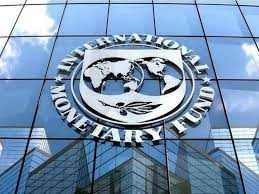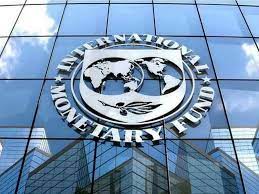
The Asia-Pacific region stands to lose more than any other if the global trade system fragments as a result of geopolitical tensions, according to the International Monetary Fund.
The IMF said in a report released on Friday that Asia and Pacific countries could lose more than 3% of their GDP if trade is cut off in sectors hit by recent US chip sanctions on China and non-tariff barriers in other areas are raised to "Cold War-era levels."
That is more than double the projected global annual losses.
The IMF added that sectors in Asian countries forced to contract due to reduced trade could face average job losses of up to 7%.
“When we talk about progression from rising trade uncertainty and more restrictive measures, [it] will eventually escalate into fragmentation where the world is divided,” Krishna Srinivasan, director of the Asia and Pacific Department at the IMF, said at a press conference in Singapore on Friday.
“Asia risks losing a lot because it is a key player in global supply chains and in a fragmented world, it risks losing more than anybody else.”
During the trade war between the United States and China in 2018, signs of global fragmentation emerged. However, more concerning signs, such as the Russia-Ukraine conflict, have since emerged. According to the IMF, sanctions against Russia have increased uncertainty in trade relations.
The IMF warned that trade policy uncertainty, rather than trade restrictions themselves, could stifle economic activity by causing firms to halt hiring and investments and new firms to delay entry into markets.
For example, the IMF discovered that trade tensions between the United States and China in 2018 reduced investment by about 3.5% after two years.
Trade fragmentation has a greater impact on emerging Asian markets and firms with high debt.
While the IMF's research focused on the impact of fragmentation on trade, it warned that there could be deeper consequences, such as the "unraveling of financial ties."
“Financial fragmentation may lead to short-term costs from a rapid unwinding of financial positions, and long-term costs from lower diversification and slower productivity growth because of reduced foreign direct investment,” the IMF said.
The international body is imploring countries to reduce harmful trade restrictions and reduce uncertainty by communicating policy objectives more clearly.
“Greater emphasis can be placed on digitalization, investing in education … but most importantly, international cooperation, because we want to avoid the risk of fragmentation … it’s important that we all act now, act together,” Srinivasan said.
Concerns have been raised about capital outflows from Asia, where interest rates lag behind those in the United States. However, they are still "manageable," according to Srinivasan.
Srinivasan went on to say that the situation in Asia has been mixed.
“For example, we saw a lot of capital flow for India, we saw capital flows for Taiwan, China, and moderate flows from Indonesia, moderate flows for Malaysia, but we saw some net inflows into Thailand. And more recently, we see flows back into India. So the picture is a bit mixed,” he said.
(Source:www.cnbc.com)
The IMF said in a report released on Friday that Asia and Pacific countries could lose more than 3% of their GDP if trade is cut off in sectors hit by recent US chip sanctions on China and non-tariff barriers in other areas are raised to "Cold War-era levels."
That is more than double the projected global annual losses.
The IMF added that sectors in Asian countries forced to contract due to reduced trade could face average job losses of up to 7%.
“When we talk about progression from rising trade uncertainty and more restrictive measures, [it] will eventually escalate into fragmentation where the world is divided,” Krishna Srinivasan, director of the Asia and Pacific Department at the IMF, said at a press conference in Singapore on Friday.
“Asia risks losing a lot because it is a key player in global supply chains and in a fragmented world, it risks losing more than anybody else.”
During the trade war between the United States and China in 2018, signs of global fragmentation emerged. However, more concerning signs, such as the Russia-Ukraine conflict, have since emerged. According to the IMF, sanctions against Russia have increased uncertainty in trade relations.
The IMF warned that trade policy uncertainty, rather than trade restrictions themselves, could stifle economic activity by causing firms to halt hiring and investments and new firms to delay entry into markets.
For example, the IMF discovered that trade tensions between the United States and China in 2018 reduced investment by about 3.5% after two years.
Trade fragmentation has a greater impact on emerging Asian markets and firms with high debt.
While the IMF's research focused on the impact of fragmentation on trade, it warned that there could be deeper consequences, such as the "unraveling of financial ties."
“Financial fragmentation may lead to short-term costs from a rapid unwinding of financial positions, and long-term costs from lower diversification and slower productivity growth because of reduced foreign direct investment,” the IMF said.
The international body is imploring countries to reduce harmful trade restrictions and reduce uncertainty by communicating policy objectives more clearly.
“Greater emphasis can be placed on digitalization, investing in education … but most importantly, international cooperation, because we want to avoid the risk of fragmentation … it’s important that we all act now, act together,” Srinivasan said.
Concerns have been raised about capital outflows from Asia, where interest rates lag behind those in the United States. However, they are still "manageable," according to Srinivasan.
Srinivasan went on to say that the situation in Asia has been mixed.
“For example, we saw a lot of capital flow for India, we saw capital flows for Taiwan, China, and moderate flows from Indonesia, moderate flows for Malaysia, but we saw some net inflows into Thailand. And more recently, we see flows back into India. So the picture is a bit mixed,” he said.
(Source:www.cnbc.com)





